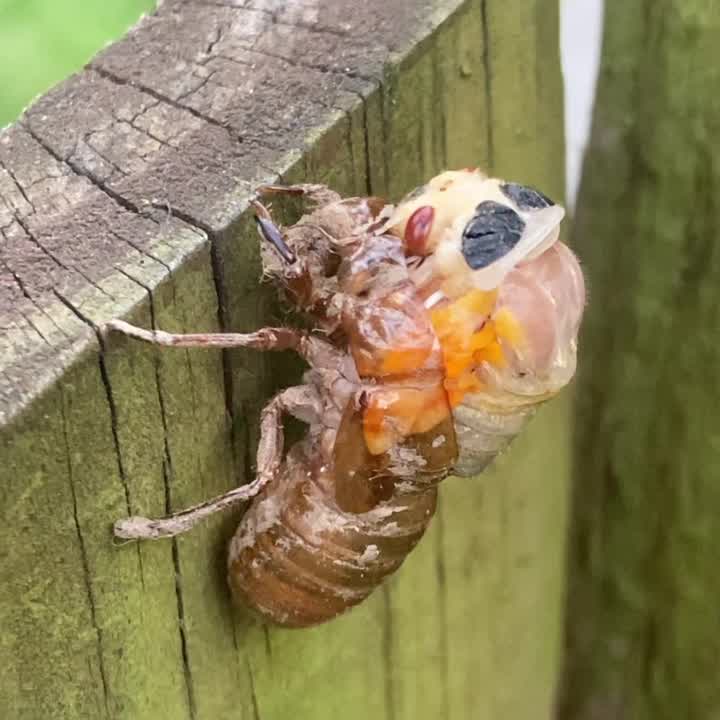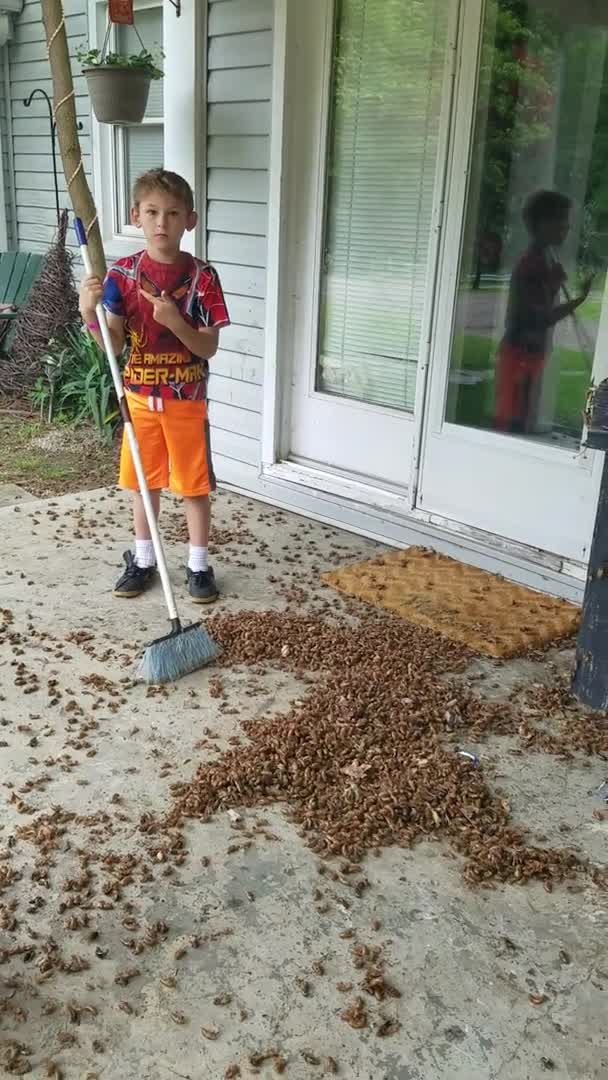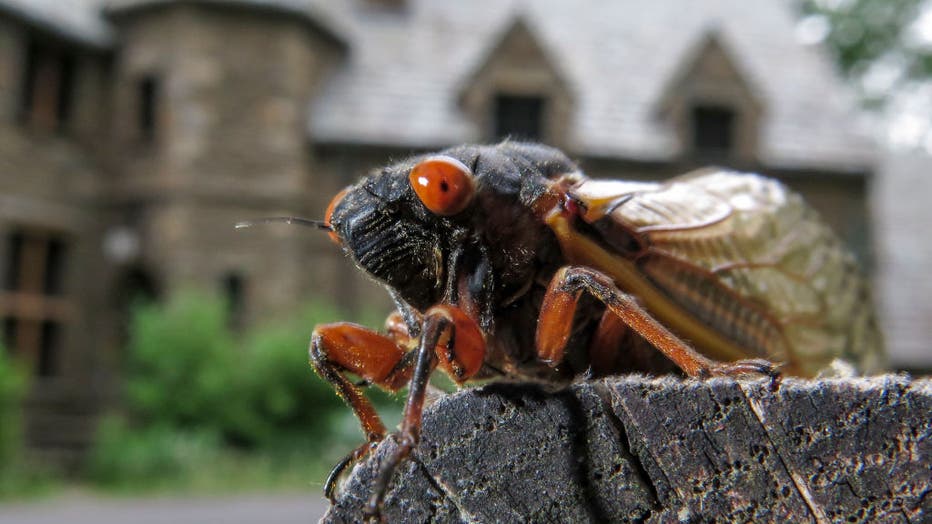'Cicada-geddon': How close are we to the 2024 cicada explosion?

Cicada molts its exoskeleton after emerging from the ground
Once off the ground, cicadas shed their skins to try and survive being eaten before moving onto the mating phase to create the next cycle of Brood X cicadas.
LOS ANGELES - "Cicada-geddon" is coming.
In an extraordinary event spanning over two centuries, the United States is on the brink of witnessing the reemergence of cicadas, creatures celebrated for their prolonged subterranean existence before bursting forth en masse from their underground dormancy, conjuring images reminiscent of a zombie apocalypse.
While numerous cicada species emerge annually, the U.S. hosts two unique periodic broods, each with cycles lasting either 13 or 17 years. The last synchronized emergence of these broods took place in 1803, during the presidency of Thomas Jefferson and amidst Napoleon's contemplation of invading England, as pointed out by Hannah Fry, a British mathematician and science communicator, on her Instagram page.
So when will this unusual double dose of cicadas take over the country?
According to Cicada Mania, a website wholly devoted to these fascinating creatures, both broods typically commence their emergence around mid-May, coinciding with the warming of the soil, and persist until the latter part of June.
"A nice, warm rain will often trigger an emergence," the website says.
When these cicadas emerge in large numbers, they pervade every corner, causing disruptions to events such as weddings and large gatherings simply due to their sheer abundance. Their widespread presence establishes them as a prominent fixture of the season, characterized by their incessant chirping and visually striking displays that etch a lasting impression on the surroundings.
READ MORE: 2024 is the year of the double cicada emergence, a 'simultaneous explosion of bugs'
Where will cicadas emerge in 2024?
The two broods that will emerge simultaneously this year are Brood XIX (the 13-year cicadas) and Brood XIII (the 17-year cicadas).
Brood XIX, according to Cicada Mania, is expected to emerge in the spring of 2024 in Alabama, Arkansas, Georgia, Illinois, Indiana, Kentucky, Louisiana, Missouri, Mississippi, North Carolina, Oklahoma, South Carolina, Tennessee, and Virginia. The last time Brood XIX came above ground was in 2011.
Are we in danger?
No. Calm down.
Cicadas pose no threat to humans or pets, although dogs have been observed overindulging and consuming them excessively.
Experts advise against killing cicadas.
While occasionally misidentified as ravenous and unrelated locusts, periodical cicadas are more of an annoyance than a cause for biblical-scale destruction. They may pose a threat to young trees and certain fruit crops, but their impact is generally limited and can be mitigated with preventive measures.

2016 video shows Ohio boy sweeping hundreds of cicadas off porch
In 2016, Brood V emerged from the ground after 17 years. This file video shows a boy in Mansfield, Ohio sweeping them off the family's front porch. Credit - Facebook/Richelle Smart via Storyful
But if you're afraid of creepy crawly things, you might want to stay home.
The numbers that will come out this year – averaging around 1 million per acre over hundreds of millions of acres across 16 states – are mind-boggling. Easily hundreds of trillions, maybe quadrillions, says University of Connecticut cicada expert John Cooley.
What do the cicadas want?
Cicadas primarily seek to fulfill their biological imperative of reproduction and ensuring the survival of their species.
Once the male cicadas have completed their above-ground mating rituals, their lifecycle comes to an end, and they pass away. As for the females, after they have laid their eggs, typically in tiny slits they meticulously carve into tree branches, their journey also concludes with their demise.

A cicada on a picnic table in front of the Nolde Mansion. In front of the Nolde Mansion at the Nolde Forest Environmental Education Center in Cumru Township, PA Monday morning May 24, 2021 where Brood X Cicadas are emerging after 17 years undergroun
Throughout her lifetime, a female cicada can lay a considerable number of eggs, ranging from 400 to 600. These eggs, once laid, undergo the process of hatching, typically occurring from late July to early August. Following this, the newly hatched cicadas descend to the ground and promptly burrow themselves underground, beginning the cycle anew.
Upon their death, cicadas play a crucial role in fertilizing the surrounding trees, although this process may emit a distinctive odor.
The Associated Press contributed to this story.

